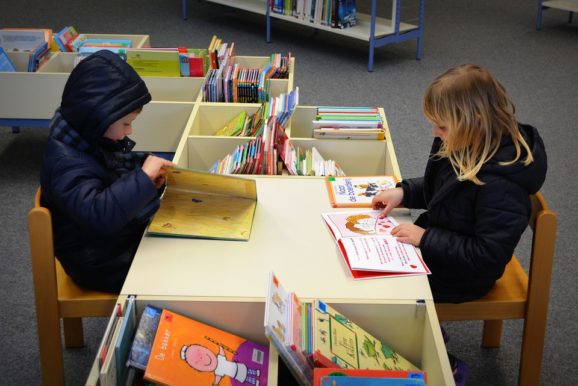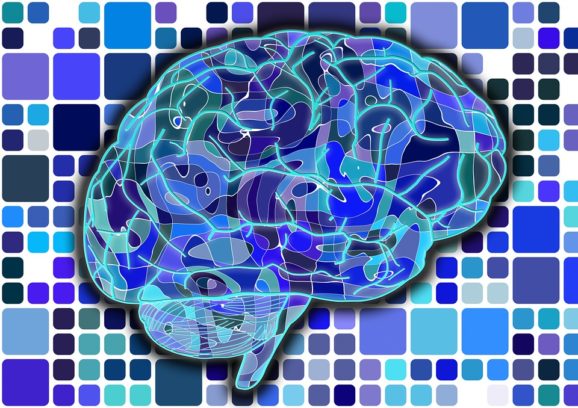There appears to be a recent movement among some parents that childhood should be a carefree and joyful time and that their children are happier when all rules and responsibilities are taken away. Nothing could be further from the truth. Continue Reading…
Several years ago, my husband Tyrone and I were in New York City when I saw something that made me cringe internally. We were in a hotel lobby in Manhattan when I spotted a double stroller. In the stroller were two adorable children who looked to be about 2 and 4 years old. Built into each section of the double stroller was a DVD player. Continue Reading…
Remember when you were little and you used to play outside for hours on end? Or maybe you’d be inside in a playroom pretending to be a teacher or an astronaut or a princess? Or you would be enjoying watching videos for babies with your parent? When children engage in play, they’re do much more than entertaining themselves. They’re learning and growing; they’re turning into well-adjusted human beings. Continue Reading…
I once heard a brain consultant by the name of Fritz Mengert say that if he had to choose between putting his grandchild in a day care center where teachers rock, hold, and hug children or one where academics are emphasized over all else, the decision would not be a difficult one. Continue Reading…
“The more that you read, the more things you will know. The more you learn, the more places you’ll go.”— Dr. Seuss
A woman once asked Albert Einstein how she could make her son more intelligent. His response? Read him fairy tales. Continue Reading…
Success in school depends on many factors for students, but one of the most important areas that can be overlooked is proper physical health practices that encourage healthy brain development. The brain is a demanding organ. It comprises only 2% of the total body weight, but consumes 8 to 10 times more oxygen and glucose than any other organ in the body. This is why we must do everything we can to protect this vital part of our body. Sadly, some people have had the health of their brains compromised as a consequence of incurring an injury. Luckily, brain injury lawyers try their best to seek justice in a legal sense retrospectively. If our bodies don’t receive the proper nutrition they need, the brain is the first to suffer. Continue Reading…
Whether you are a teacher delivering instructions to students or a student attempting to retain information for a class, there are 20 cross-curricular strategies that take advantage of the way all brains learn best. They are as follows:
I’ve heard some teachers say that they have students who don’t want to be challenged. I disagree! One of the reasons that students can’t put down video games is because they look forward to moving to a more challenging level of the game. The difference between video games and classrooms is that when it comes to the game, students have the confidence to believe that they can succeed at a more difficult level. Continue Reading…
According to brain research, there are simple things you can do to create a calming, stress-relieving environment for you, your family, and even students in a classroom.
Relationships are everything! Familial and friend relationships, workplace relationships, and spiritual relationships all make a tremendous difference in our lives.
When you look at the first chapter in my best-selling book on classroom management, Shouting Won’t Grow Dendrites: 20 Detours Around the Danger Zones, you will find that the first chapter is titled, “Develop a Relationship with Each Student.” Continue Reading…
When students cannot see the purpose in a teacher’s lesson, they will often ask the question, “Why do we have to learn this?” This question makes perfect sense, since the purpose of the brain was never to make straight As or score high on a standardized test. The purpose of the brain is survival in the real world. So the question becomes, “What does this lesson have to do with my survival?”
Stephen Covey, author of 7 Habits of Highly Effective People, stated the following: Everything happens twice – once in the mind and once in reality. The once in the mind could be called visualization. Visualization has been defined as the use of mental images to influence bodily processes and is one of 20 brain-based strategies that enables human beings to remember what they are learning.
If you believe you can or you believe you can’t, you’re actually right!
This thing we call confidence is often difficult for a parent to see in a child or for a teacher to see in a student. We can even have a hard time seeing it within ourselves. But it is not difficult to observe in sports, so I would like to use a sports analogy to explain the concept.
Continue Reading…
Very few people actually realize the positive effects of laughter. In fact, it has been said that little children can laugh up to 400 times per day. Adults are lucky to average seven times per day.
I guess between childhood and adulthood, life happens! If, however, while you are living this life that happens, make smiles and laughter a part of your every day.
What follows is a brief secular excerpt of the complimentary chapter I am offering to you, my readers. If you enjoy what you read, please don’t hesitate to download the complete piece below.
“Most people are about as happy as they make up their minds to be.”
~Abraham Lincoln
When do you find it hardest to stay positive? Continue Reading…
What follows is a brief faith-based excerpt of the complimentary chapter I am offering as a gift to you. If you enjoy what you read, please don’t hesitate to download the complete piece below.
In such a tough and negative world, it’s easy to find ourselves on a path we never intended to be on. When I travel to teach or speak, many people tell me things like, “I thought I’d be happy and have everything figured out by the time I hit 50, but I don’t think I have any more answers than I did at 25.” Or they make comments like, “In my 30s I resolved to complete a marathon by age 40. But at 39, the only thing I can complete is a 5-second walk to the fridge for more ice cream!”
How in the world did we get here? Continue Reading…















